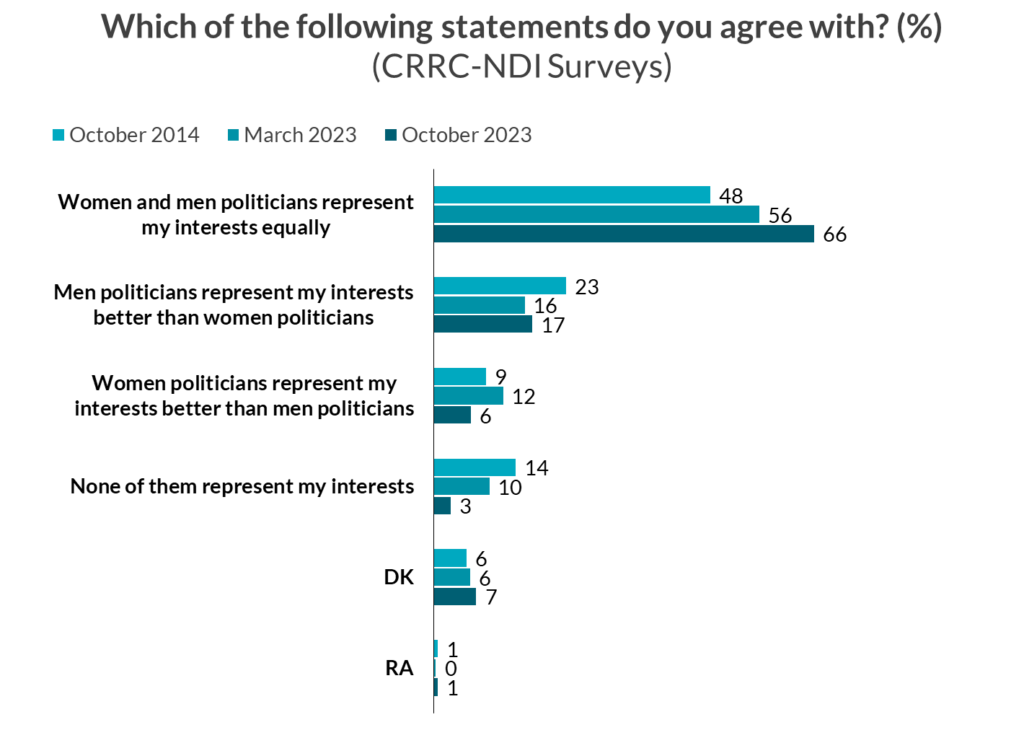გენდერი

Gendered norms prevail in Georgian society, which often translates into deprecation of women for smoking, drinking alcohol, having pre-marital sex, and even living with a boyfriend. However, attitudes appear to be shifting.
CRRC’s Caucasus Barometer survey asked people what they thought…
Last month, UN Women released the results of a Rapid Gender Assessment of Covid-19. CRRC Georgia conducted the research, which was funded by the Norwegian Ministry of Foreign Affairs and the Joint SDG Fund. The project was part of a broader…
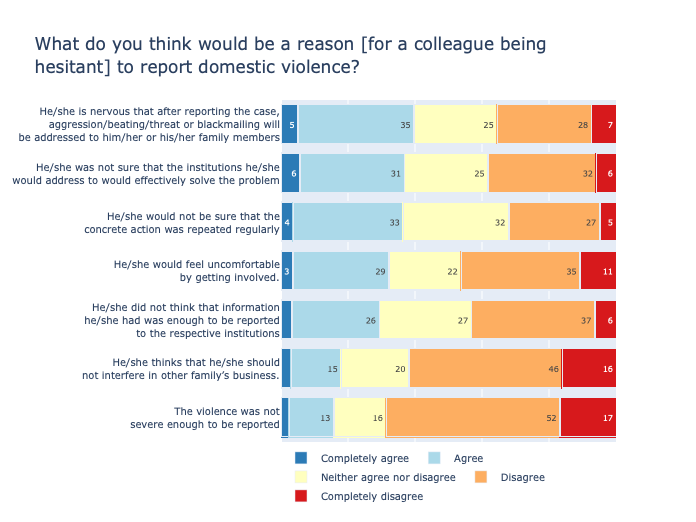
Domestic violence was widely suspected to have increased during the COVID-19 crisis.
A study CRRC Georgia conducted for UN Women prior to the crisis found a behavioural lever that could encourage teachers to report domestic violence they…
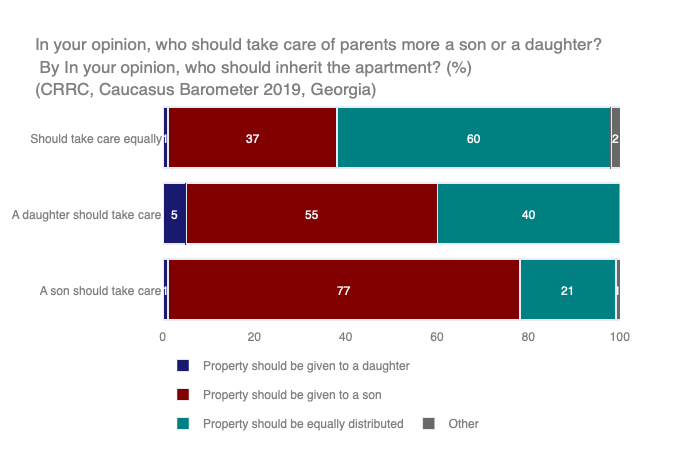
In Georgia, tradition has it that a son stays in the family and is responsible for taking care of his parents in their old age. Consequently, tradition also gives parents’ property to their sons. This limits women’s access to economic…
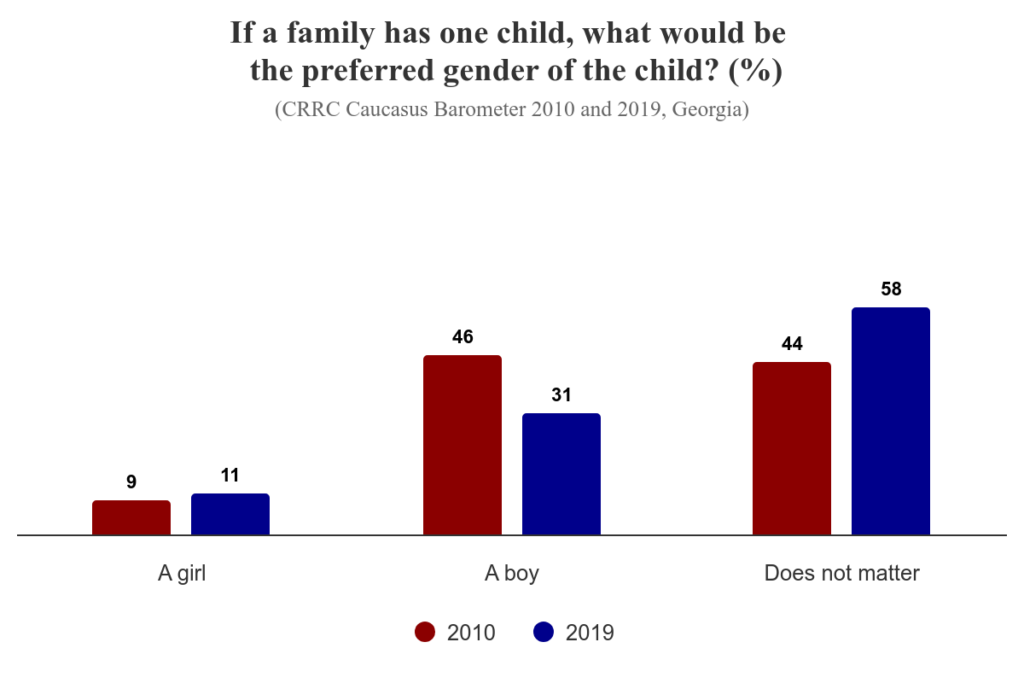
Preferences for the gender of children has a long history around the world and Georgia is no exception. CRRC-Georgia examines how attitudes have changed over the last decade.
In Georgia, having a boy has traditionally been desirable as sons are often considered…
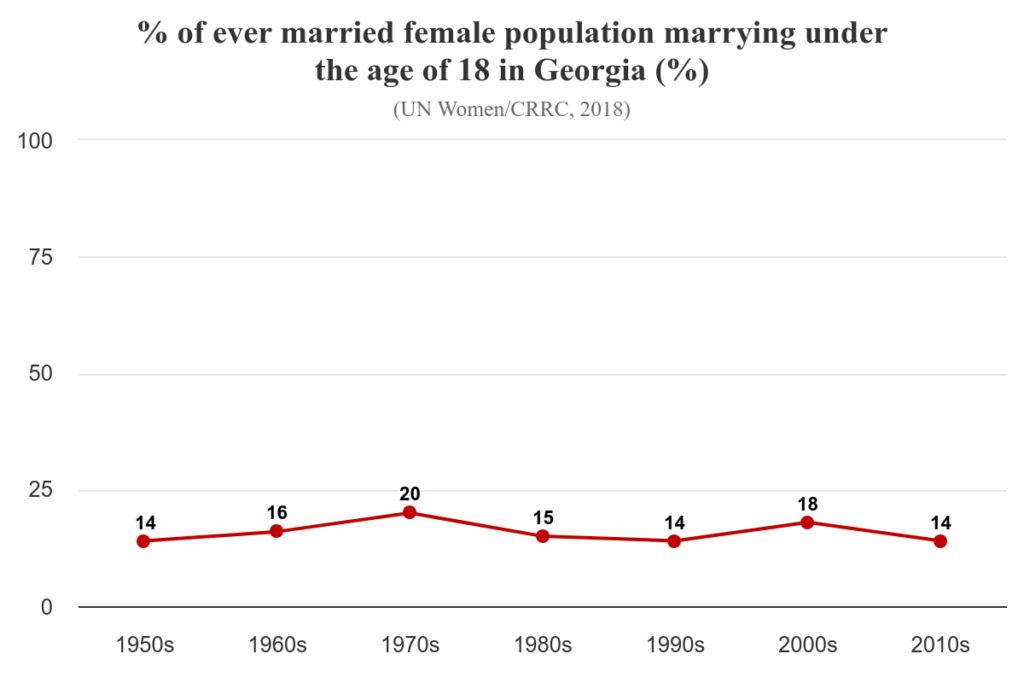
Widely condemned as a violation of human rights, child marriage is associated with negative health outcomes — both physical and psychological. Aside from these clear issues, a growing body of research suggests child marriage also has economic consequences for both the women…
As a result of the conflicts in the 1990s and in 2008 in Abkhazia and the Tskhinvali Region/South Ossetia, nearly 6 percent of Georgia’s population is internally displaced. Previous studies have suggested that internal displacement from conflict can alter attitudes towards gender relations,…
